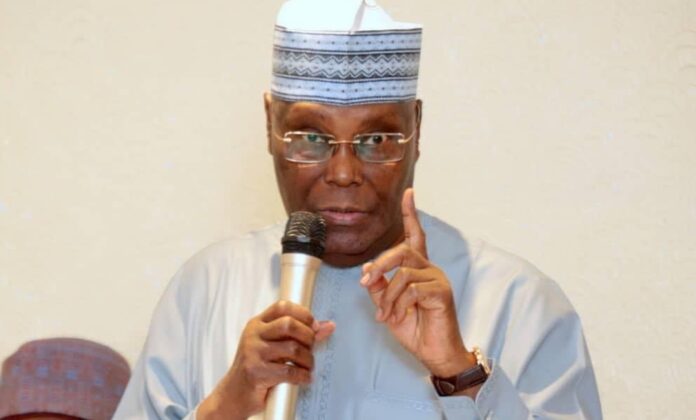Withdrawal of Niger, Mali, Burkina Faso from ECOWAS, “serious diplomatic meltdown,” says Atiku
By Emma Ogbuehi
The presidential candidate of the Peoples Democratic Party (PDP) in the 2023 elections, Alhaji Atiku Abubakar, has described the withdrawal of Mali, Burkina Faso, and Niger Republic from the Economic Community of West African States (ECOWAS) as a “serious diplomatic meltdown.”
Atiku said in view of the withdrawal, Nigeria must now double its efforts to protect its security interests.
The Sahel countries’ military regimes announced their immediate withdrawal from the ECOWAS regional bloc in a joint statement on Sunday, following disagreements over imposed sanctions.
Many fear that because Nigeria borders Niger Republic to the north, the country’s ability to combat terrorism may be impacted by the pullout.
Atiku, in a short message posted on X on Sunday, said: “Reports about the withdrawal of three countries from our sub-regional body, @ecowas cedeao, is concerning. It is a matter of serious diplomatic meltdown. We must keep the country’s national security interest, especially the fight against terrorism, banditry, kidnapping, and others in focus while we appraise the situation,” he said.
The three nations, led by military governments, accused the regional bloc of becoming a threat to member states.
Niger, Mali and Burkina Faso “decide in complete sovereignty on the immediate withdrawal” from the Economic Community of West African States (ECOWAS), read a joint statement published on Sunday.
ECOWAS “under the influence of foreign powers, betraying its founding principles, has become a threat to its member states and its population”, read the statement.
The three countries accused the regional body of failing to support their fight against “terrorism and insecurity”, while imposing “illegal, illegitimate, inhumane and irresponsible sanctions”.
However, ECOWAS said in a statement that it had not been notified of the countries’ decision to quit the bloc. Its protocol provides that withdrawal takes up to one year to be completed.
“Burkina Faso, Niger and Mali remain important members of the Community and the Authority remains committed to finding a negotiated solution to the political impasse,” it said.
READ ALSO: Police officer demanding bribe from motorist in viral video identified
Widely seen as West Africa’s top political and regional authority, the 15-nation bloc of ECOWAS – formed in 1975 to “promote economic integration” in member states – has struggled in recent years to reverse rampant coups in the region where citizens have complained of not benefitting from rich natural resources.
Military power grabs took place in Mali in 2020 and 2021, in Burkina Faso in 2022 and in Niger in 2023.
The regional body reacted by suspending all three countries and imposed heavy sanctions on Niger and Mali.
On Friday, Niger tried to amend ties with ECOWAS by inviting its representatives to the capital Niamey, but only representation from Togo showed up.
“There is bad faith within this organisation,” lamented Ali Mahaman Lamine Zeine, Niger’s army-appointed prime minister.
Military leaderships in the three nations have vowed to tackle the rise of violent armed groups in their countries and have joined forces in the so-called “Alliance of Sahel States”.
The three countries have cut military ties with France, the former colonial power. France once had a strong presence across the Sahel, but announced the withdrawal of its troops from the three countries after the coups.
The French military withdrawal and economic sanctions on already fragile economies have heightened concern that armed groups could spread southwards towards the relatively stable coastal countries of Ghana, Togo, Benin and Ivory Coast.
West Africa recorded more than 1,800 attacks in the first six months of 2023, resulting in nearly 4,600 deaths and creating dire humanitarian consequences. According to an ECOWAS top regional official, this was just “a snippet of the horrendous impact of insecurity”.













